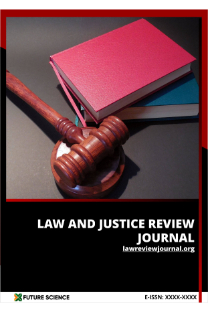Social rights enforcement: Is it possible to tackle poverty through the lens of international human rights law?
Fizyolojik ihtiyaçlar insanoğlunun en temel gereksinimleridir ve onsuz yaşamak mümkün değildir. Malesef, tüm dünyada insanlar halen yetersiz yaşam standartlarıyla karşı karşıya kalmaktadırlar. Bundan dolayı, ihtiyaç halindeki insanları yoksulluğa karşı korumak kaçınılmaz bir vazife olarak belirmektedir. Ülke düzeyinde sosyal hakları korumak ve geliştirmek için atılacak adımlardan birisini de uluslararası insan hakları mekanizmaları oluşturmaktadır. Buna rağmen, bu mekanizmaların yoksullukla mücadele konusunda etkinliği hususu tartışmalıdır. Bu çalışmada, tüm hakların birbirine bağlı, birbirinde ayrılmaz olduğu ve biri diğerini desteklediği belirtilmektedir. İnsan haklarını anlaşılır bir dil ile düzenleyen uluslararası insan hakları bildirgeleri olmalıdır. Benzer şekilde, bu bildirgede yer alan hakların uygulamasını gözetleyen uluslararası mekanizmalar oluşturulmalıdır. Bununla birlikte, iş cebri uygulamaya gelince, durum tersine dönmektedir. Sosyal politikalar, politik ve ekonomik konulardır ve ulusal seviyede demokratik çoğunluk tarafından tatbik edilmelidir; bu mekanizmalar gelişmekte olan ülkelerdeki geniş yoksulluğu gidermede etkin değildir.
Physiological demands are the most fundamental needs for human beings and without them people cannot survive. Unfortunately, people all around the world face an inadequate standard of living. Therefore, it is an unavoidable duty to protect people in need against poverty. One of ways to protect and promote social rights within states might be the application of international human right law. However, the efficiency of international mechanisms to tackle poverty is debatable. In this essay, it is concluded that all rights are interdependent and indispensible and they support each other. There should be international bills of rights that regulate social rights in an explicit language. Likewise, it is important to establish international monitoring mechanisms to safeguard the bills. However, when it comes to enforced implementation, the position of law is reversed. The social policy is a political and economical issue that must be implemented by democratic majority in national level; these mechanisms cannot alleviate gross poverty in developing countries.
___
Boven TV, Categories of Rights in Daniel Moeckli, Sageeta Shah and Sandesh Sivakumaran (eds),International Human Rights Law (OUP 2010).Campbell T, Poverty as a Violation of Human Rights: Inhumanity or Injustice in Thomas Pogge (ed), Freedom From Poverty as a Human Rights: Who Owes What to the Very Poor? (1th edn, UNESCO/OUP 2007).
CESCR, General Comments 20, E/C.12/GC/20 (2009).
Cullen H, The Collective Complaints System of the European Social Charter: Interpretative Methods of the European Committee of Social Charter (2009) 9 HRLR.
Dennis MJ and Stewart DP, Justiciability of Economic, Social, and Cultural Rights: Should There Be an International Complaints Mechanism to Adjudicate the Right to Food, Water, Housing, and Health? (2004) 98 AJIL.
ECOSOC Res 17 (1986) UN Doc E/RES/1985/17.
Gearty C, Against Judicial Enforcement in Conor Gearty and Virginia Mantouvalou, Debating Social Rights (Hart Publishing 2011).
Heyns C and Killander M, Africa in Daniel Moeckli, Sageeta Shah and Sandesh Sivakumaran (eds),International Human Rights Law (OUP 2010).
Hunt P, Reclaiming Economic, Social and Cultural Rights (1993) 1 Waikato Law Review.
Kairys D, Law and Politics (1983-1984) 52 George Washington Law Review.
Kennedy D, Freedom and Constraint in Adjudication: A Critical Phenomenalogy (1986) 36 Journal Legal Education.
Khaliq U and Churchill R, The European Committee of Social Rights: Putting Flesh on the Bare Bones of the European Social Charter in Malcolm Langford (ed), Social Rights Jurisprudence: Emerging Trends in International and Comparative Law (1th edn, CUP 2008).
Langford M, The Justiciability of Social Rights: From Practice to Theory in Malcolm Langford (ed), Social Rights Jurisprudence: Emerging Trends in International and Comparative Law (1th edn, CUP 2008).
Mantouvalou V, In Support of Legislation in Conor Gearty and Virginia Mantouvalou, Debating Social Rights (Hart Publishing 2011).
Mantouvalou V, N v UK: No Duty to Rescue the Nearby Needy (2009) 9 MLR.
Mantouvalou V, Work and Private Life: Sidabras v Lithuania (2005) 30 ELR.
Maslow AH, A Theory of Human Motivation (1943) 50 Psycholojical Review.
McGregor G, The International Covenant on Social, Economic, and Cultural Rights: Will It Get Its Day in Court? (2000-2002) 28 Manitoba Law Journal.
Pasqualucci J, The Americas in Daniel Moeckli, Sageeta Shah and Sandesh Sivakumaran (eds),International Human Rights Law (OUP 2010).
Pierce RJ, Is Standing Law or Politics? (1998-1999) 77 NCL.
Roth K, Defending Economic, Social and Cultural Rights: Pratical Issues Faced by an International Human Rights Organisation (2004) 26 HRQ.
Rubenstein LS, How International Human Rights Organisations Can Advance Economic, Social, and Cultural Rights: A Response to Kenneth Roth (2004) 26 HRQ.
Sachs A, Enforcement of Social and Economic Rights (2006-2007) 22 American University International Law Review.
Salomon ME, Global Responsibility for Human Rights: World Poverty and the Development of International Law (1th edn, OUP 2007).
Schmidt M, United Nations in Daniel Moeckli, Sageeta Shah and Sandesh Sivakumaran (eds),International Human Rights Law (OUP 2010).
Sidabras and Dziautas v Lithuania, (App. 55480/00&593300/00), 27 July 2004, (2004) 42 EHRR 104, ECHR 2004-VIII.
Smith RKM, Textbook on International Human Rights (4th edn, OUP 2010).
Ssenyonjo M, Economic, Social and Cultural Rights in International Law (Hart Publishing 2009).
Steiner HJ, Philip Alston and Ryon Goodman, International Human Rights in Context: Law, Politics and Morals (3th edn, OUP 2007).
Tushnet M, Social Welfare Rights and the Forms of Judicial Review (2002-2003) 82 Texas Law Review.
Vega CDL, Protecting Economic, Social and Cultural Rights (1994) 15 Whittier Law Review.
- ISSN: 1309-9485
- Yayın Aralığı: Yılda 2 Sayı
- Başlangıç: 2010
- Yayıncı: Türkiye Adalet Akademisi
Sayıdaki Diğer Makaleler
Fooling nature: Ethical, social, psychological and legal aspects of surrogate motherhood
Constitutionalizing secularism, alternative secularisms or liberal democratic constitutionalism?
Recht und rechtslehre zwischen der türkei und Deutschland
Die historische entwicklung des erziehungsgedankens im jugendstrafrecht
Das familienrechtliche mandat: Familien-mediation im deutschen familienrecht
The kampala compromise on the crime of aggression
